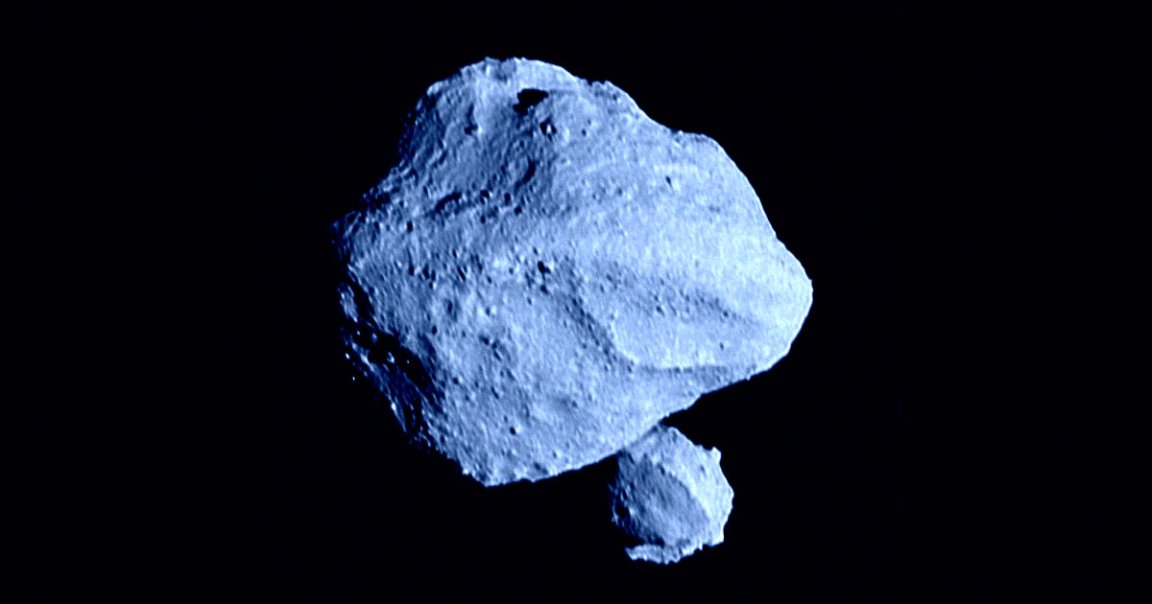
That’s Dinky to You
Last year, images taken by NASA’s Lucy spacecraft revealed that a tiny moon that orbits an asteroid nicknamed “Dinky” is, in fact, two tiny moons fused together.
The finding baffled scientists, who had never witnessed this kind of satellite, known as a contact binary, orbiting an asteroid.
But thanks to new research, we might be getting closer to piecing together the strange cosmic puzzle. A new NASA study about the strange Dinky discovery, published this week in the journal Nature, posits that the mid-size asteroid likely birthed one or both mini-moons — together dubbed “Selam” — itself. Cosmic twins!
The NASA researchers behind the study believe that the findings offer a fascinating new glimpse into the mysterious, and surprisingly elaborate world of smaller cosmic bodies.
“There’s a lot more complexity in these small bodies than we originally thought,” said University of Maryland astronomy professor and study coauthor Jessica Sunshine in a statement.

Cosmic Dance
At the time of Lucy’s visit to Dinky — given name Dinkinesh — in November 2023, it was the smallest body ever closely examined by humankind within the main asteroid belt between Mars and Jupiter.
At first, as Space.com reported at the time, Dinky was believed to be a type of contact binary — a not-too-rare phenomenon in which two celestial bodies orbit each other in an extremely close cosmic dance. But when scientists looked closer at Selam, they were shocked to discover that the satellite was a bizarre, unprecedented contact binary within a contact binary. Or, as Space.com put it more recently, a “contact-binary-asteroid-moon situation.”
Examining Dinky’s surface, though, seems to have shed some light on the rare throupling. As explained in the study, the astronomers believe that the small asteroid started spinning fast enough for some of its loosely-bonded material to break off. Some of that material stayed in orbit around the young space rock and fused into two small, separate satellites.
How the moons later combined into one is still a mystery, but it’s likely they moved closer over time until they eventually melded together.
We wish this delightfully strange celestial family all the best — and, to Sunshine’s point, we hope that this research leads to further study into the weird world of smaller space rocks down the line.
More on space: Astronomers Spot Epic Flows of Lava Oozing out of Venus